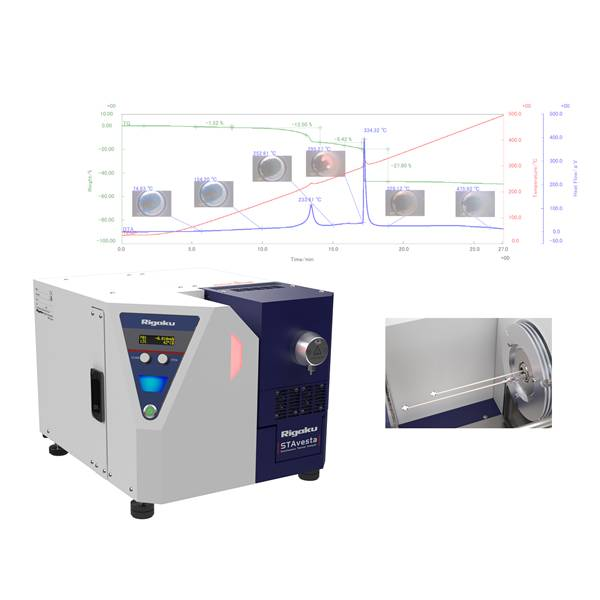STA (TG-DTA)
STA (Simultaneous Thermal Analysis) is a thermal analysis technique that simultaneously measures a sample’s mass change and thermal behavior as it is heated. It is widely used in research and quality control to evaluate material stability, composition, and reactivity under various temperatures and atmospheric conditions.
STA consists of TG (Thermogravimetry), which measures changes in a sample’s mass during heating or cooling, and DTA (Differential Thermal Analysis), which detects heat flow by measuring the temperature difference between the sample and a reference materia, thereby identifying endothermic and exothermic reactions.
TG-DTA provides a more complete picture of how materials behave under thermal stress. Samples in solid (powder, film) or liquid form are typically heated in controlled atmospheres such as nitrogen or air, enabling detailed analysis of thermal events like sublimation, evaporation, oxidation, or thermal degradation.
TG-DTA is a powerful tool in both R&D and production environments. It supports:
- Rubber analysis – such as quantifying carbon black content or evaluating a composition ratio.
- Polymer thermal resistance – measuring melting temperature and decomposition behavior in polymers like polyethylene (PE).
- Inorganic material evaluation – studying phase transitions and oxidation-reduction behavior in ceramics and metals.
TG-DTA also plays a key role in ensuring compliance with standards like JIS and ISO. With its high sensitivity and wide applicability, TG-DTA is essential for understanding the thermal properties of materials across many industries.

Rigaku recommends the following products

Contact Us
Whether you're interested in getting a quote, want a demo, need technical support, or simply have a question, we're here to help.
